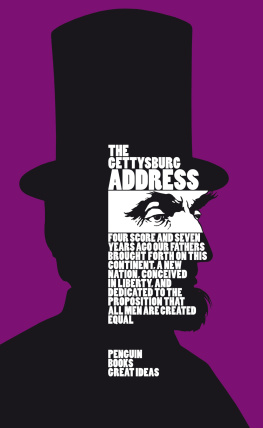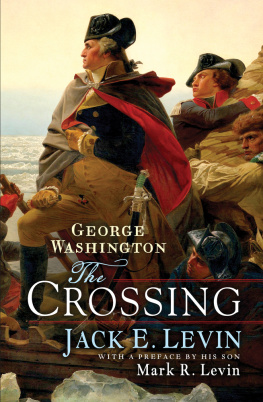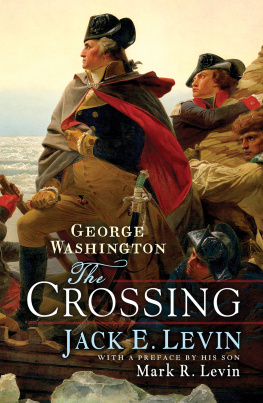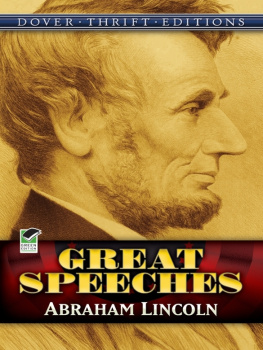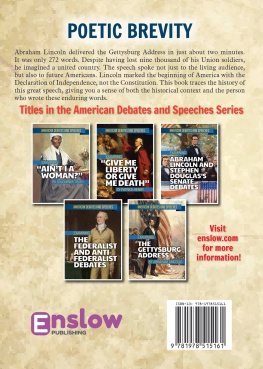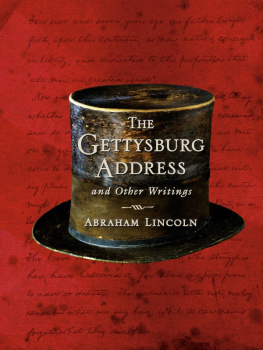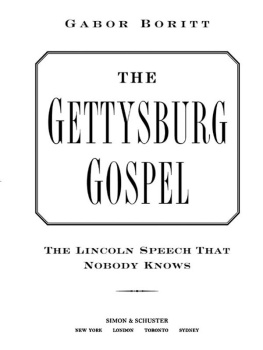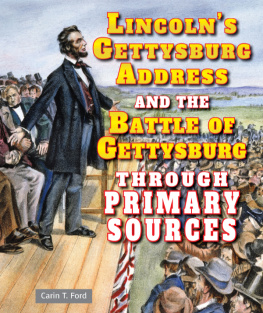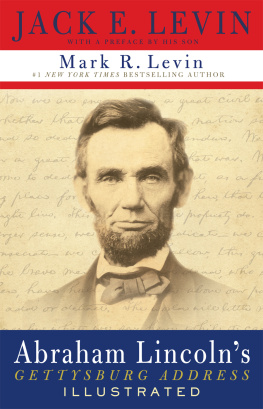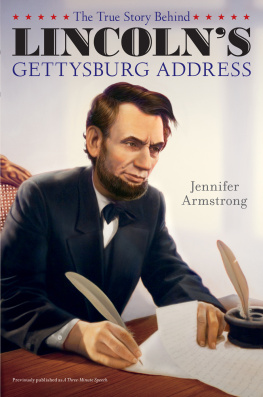Abraham Lincoln
The Gettysburg Address
PENGUIN BOOKS GREAT IDEAS
PENGUIN BOOKS
Published by the Penguin Group
Penguin Books Ltd, 80 Strand, London WC2R 0RL , England
Penguin Group (USA) Inc., 375 Hudson Street, New York, New York 10014, USA
Penguin Group (Canada), 90 Eglinton Avenue East, Suite 700, Toronto, Ontario, Canada M4P 2Y3
(a division of Pearson Penguin Canada Inc.)
Penguin Ireland, 25 St Stephens Green, Dublin 2, Ireland
(a division of Penguin Books Ltd)
Penguin Group (Australia), 250 Camberwell Road, Camberwell, Victoria 3124, Australia
(a division of Pearson Australia Group Pty Ltd)
Penguin Books India Pvt Ltd, 11 Community Centre, Panchsheel Park, New Delhi 110 017, India
Penguin Group (NZ), 67 Apollo Drive, Rosedale, North Shore 0632, New Zealand
(a division of Pearson New Zealand Ltd)
Penguin Books (South Africa) (Pty) Ltd, 24 Sturdee Avenue, Rosebank, Johannesburg 2196, South Africa
Penguin Books Ltd, Registered Offices: 80 Strand, London WC2R 0RL , England
www.penguin.com
Taken from The Portable Abraham Lincoln, published by Penguin Group (USA) Inc. 1992, 2009
This selection published in Penguin Books 2009
All rights reserved
Except in the United States of America, this book is sold subject to the condition that it shall not, by way of trade or otherwise, be lent, resold, hired out, or otherwise circulated without the publishers prior consent in any form of binding or cover other than that in which it is published and without a similar condition including this condition being imposed on the subsequent purchaser
ISBN: 978-0-14-195663-3
Abraham Lincoln
18091865
Speech on the Kansas-Nebraska act at Peoria, Illinois
16 October, 1854
Mr Lincolns Speech
On Monday, October 16, Senator Douglas, by appointment, addressed a large audience at Peoria. When he closed he was greeted with six hearty cheers; and the band in attendance played a stirring air. The crowd then began to call for L INCOLN , who, as Judge Douglas had announced was, by agreement, to answer him. Mr Lincoln then took the stand, and said
I do not arise to speak now, if I can stipulate with the audience to meet me here at half past 6 or at 7 oclock. It is now several minutes past five, and Judge Douglas has spoken over three hours. If you hear me at all, I wish you to hear me thro. It will take me as long as it has taken him. That will carry us beyond eight oclock at night. Now every one of you who can remain that long, can just as well get his supper, meet me at seven, and remain one hour or two later. The Judge has already informed you that he is to have an hour to reply to me. I doubt not but you have been a little surprised to learn that I have consented to give one of his high reputation and known ability, this advantage of me. Indeed, my consenting to it, though reluctant, was not wholly unselfish; for I suspected if it were understood, that the Judge was entirely done, you democrats would leave, and not hear me; but by giving him the close, I felt confident you would stay for the fun of hearing him skin me.
The audience signified their assent to the arrangement, and adjourned to 7 oclock P.M ., at which time they re-assembled, and Mr L INCOLN spoke substantially as follows:
The repeal of the Missouri Compromise, and the propriety of its restoration, constitute the subject of what I am about to say.
As I desire to present my own connected view of this subject, my remarks will not be, specifically, an answer to Judge Douglas; yet, as I proceed, the main points he has presented will arise, and will receive such respectful attention as I may be able to give them.
I wish further to say, that I do not propose to question the patriotism, or to assail the motives of any man, or class of men; but rather to strictly confine myself to the naked merits of the question.
I also wish to be no less than National in all the positions I may take; and whenever I take ground which others have thought, or may think, narrow, sectional and dangerous to the Union, I hope to give a reason, which will appear sufficient, at least to some, why I think differently.
And, as this subject is no other, than part and parcel of the larger general question of domestic-slavery, I wish to MAKE and to KEEP the distinction between the EXISTING institution, and the EXTENSION of it, so broad, and so clear, that no honest man can misunderstand me, and no dishonest one, successfully misrepresent me.
In order to a clear understanding of what the Missouri Compromise is, a short history of the preceding kindred subjects will perhaps be proper. When we established our independence, we did not own, or claim, the country to which this compromise applies. Indeed, strictly speaking, the confederacy then owned no country at all; the States respectively owned the country within their limits; and some of them owned territory beyond their strict State limits. Virginia thus owned the North-Western territory the country out of which the principal part of Ohio, all Indiana, all Illinois, all Michigan and all Wisconsin, have since been formed. She also owned (perhaps within her then limits) what has since been formed into the State of Kentucky. North Carolina thus owned what is now the State of Tennessee; and South Carolina and Georgia, in separate parts, owned what are now Mississippi and Alabama. Connecticut, I think, owned the little remaining part of Ohio being the same where they now send Giddings to Congress, and beat all creation at making cheese. These territories, together with the States themselves, constituted all the country over which the confederacy then claimed any sort of jurisdiction. We were then living under the Articles of Confederation, which were superceded by the Constitution several years afterwards. The question of ceding these territories to the general government was set on foot. Mr Jefferson, the author of the Declaration of Independence, and otherwise a chief actor in the revolution; then a delegate in Congress; afterwards twice President; who was, is, and perhaps will continue to be, the most distinguished politician of our history; a Virginian by birth and continued residence, and withal, a slave-holder; conceived the idea of taking that occasion, to prevent slavery ever going into the north-western territory. He prevailed on the Virginia Legislature to adopt his views, and to cede the territory, making the prohibition of slavery therein, a condition of the deed. Congress accepted the cession, with the condition; and in the first Ordinance (which the acts of Congress were then called) for the government of the territory, provided that slavery should never be permitted therein. This is the famed ordinance of 87 so often spoken of. Henceforward, for sixty-one years, and until in 1848, the last scrap of this territory came into the Union as the State of Wisconsin, all parties acted in quiet obedience to this ordinance. It is now what Jefferson foresaw and intended the happy home of teeming millions of free, white, prosperous people, and no slave amongst them.
Thus, with the author of the Declaration of Independence, the policy of prohibiting slavery in new territory originated. Thus, away back of the constitution, in the pure fresh, free breath of the revolution, the State of Virginia, and the National congress put that policy in practice. Thus through sixty odd of the best years of the republic did that policy steadily work to its great and beneficent end. And thus, in those five states, and five millions of free, enterprising people, we have before us the rich fruits of this policy. But now new light breaks upon us. Now congress declares this ought never to have been; and the like of it, must never be again. The sacred right of self government is grossly violated by it! We even find some men, who drew their first breath, and every other breath of their lives, under this very restriction, now live in dread of absolute suffocation, if they should be restricted in the sacred right of taking slaves to Nebraska. That

